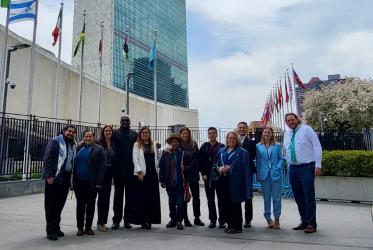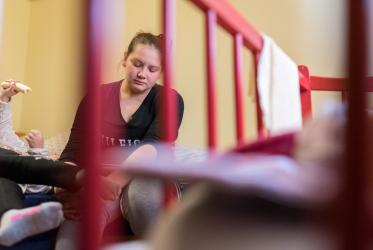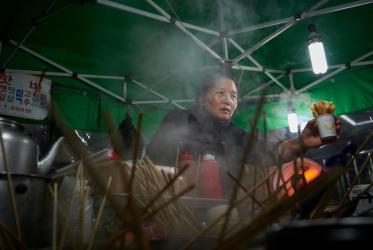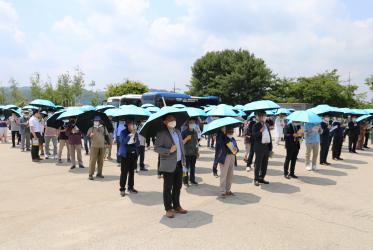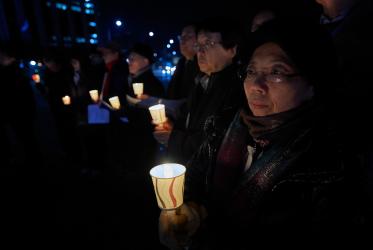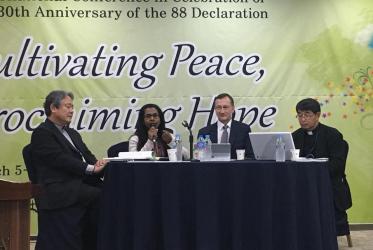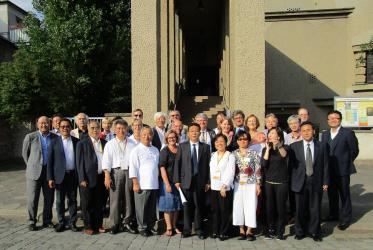Displaying 1 - 20 of 29
New student body at Bossey Ecumenical Institute “a source of joy”
14 September 2020
Faltering Colombian peace process needs urgent work
07 June 2019
WCC welcomes “powerful sign of hope” on Korean Peninsula
08 March 2018
WCC Executive Committee issues statement on climate justice
25 November 2016
WCC welcomes historic step towards peace in Colombia
24 September 2015
Towards accessible and inclusive societies and churches in Latin America
15 September 2014
